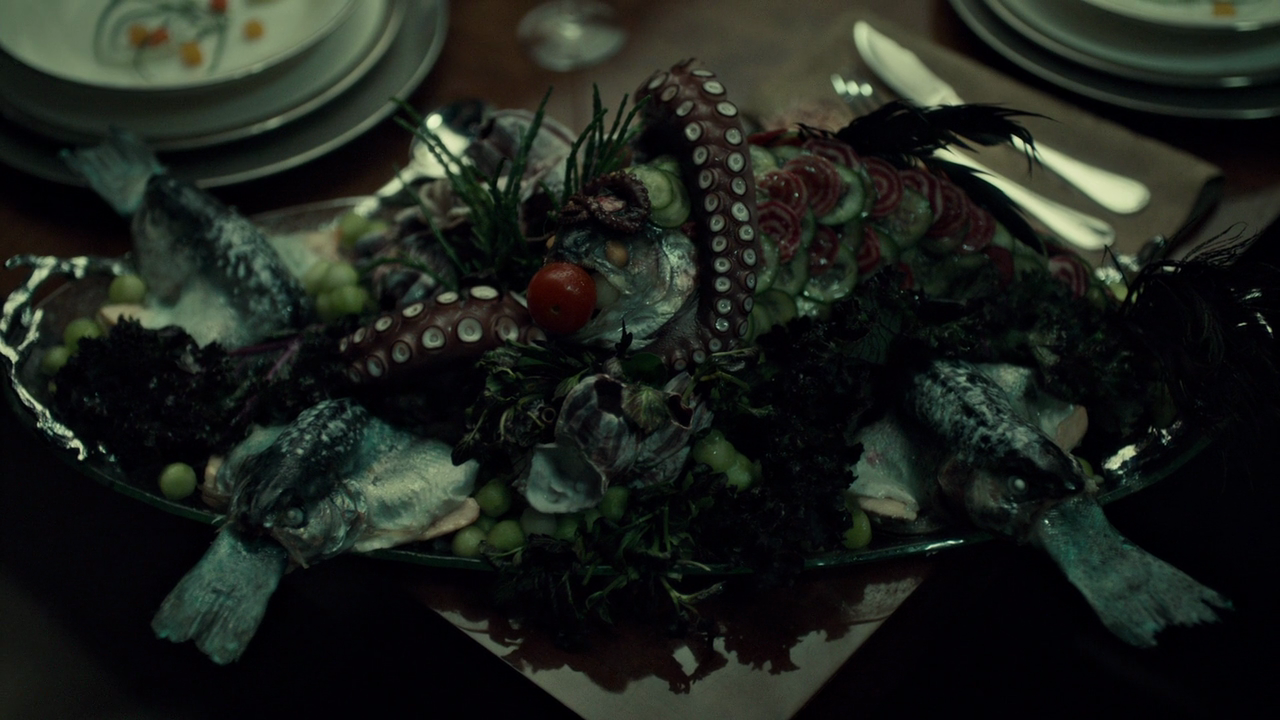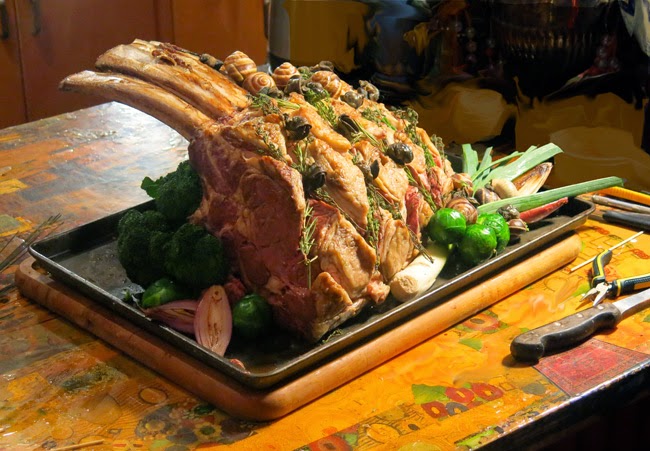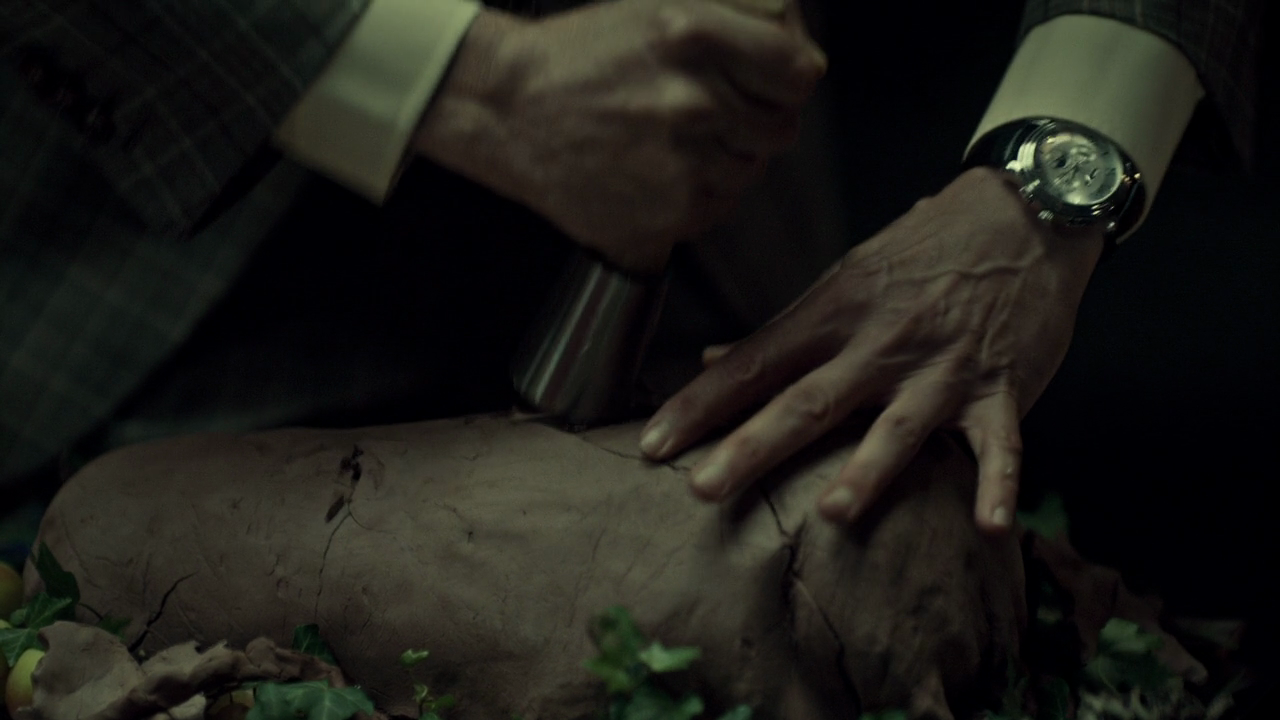The Proverbs of Hell 21/39: Su-Zukana
 SU-ZUKANA: A palate cleanser, typically involving vinegar. A better title for last week, I suspect, but still fitting for this, which essentially starts off with all new concerns.
SU-ZUKANA: A palate cleanser, typically involving vinegar. A better title for last week, I suspect, but still fitting for this, which essentially starts off with all new concerns.
JACK CRAWFORD: How do you catch a fish who isn’t hungry?
WILL GRAHAM: You have to change tactics. Use live bait that moves and excites them to action. Gotta make him bite even though he’s not hungry.
JACK CRAWFORD: Make him act on instinct. He’s always a predator.
WILL GRAHAM: You have to create a reality where only you and the fish exist, where your lure becomes what he wants most, despite everything he knows.
JACK CRAWFORD: Wrong move and he swims away.
WILL GRAHAM: I’m a good fisherman, Jack.
Will’s framework of fishing and hunting has had time to evolve in his solitude, so that fishing takes on aesthetic qualities. Of particular interest is the creation of realities, an explicitly narrativizing approach that reframes fishing as an act of artistic creation. Already the reality he needs is coming into being.
HANNIBAL: Truite saumonée au bleau with vegetables and broth, served with hollandaise sauce on the side. Beautiful fish, Will.
WILL GRAHAM: It was my turn to provide the meat.
HANNIBAL: More flavorful and firm than farmed specimens. I find the trout to be a very Nietzschean fish. Trials of his wild existence find their way into the flavor of the flesh.
Will’s laconic line about providing the meat – sufficiently passive aggressive that Hannibal calls him on it shortly thereafter – still flags a fundamental appetite to do so. The bait, in other words, has been flashed. Hannibal, meanwhile, is going to entertaining lengths to empathize with the fish sufficiently to find aesthetic sustenance in it, elevating the trout into a would be uberfisch so that his dominance of it can feel substantive.
HANNIBAL: I agree with the pagans. The horse is divine. All beasts of burden are sacred animals.
A striking claim from Hannibal. The easy (and thus hopelessly lazy) interpretation would be to treat this as some sort of lie, but Hannibal has no motivation to do so in this instance, and he is not given to unnecessary falsehood. (Anyway, his declaration that he agrees with the pagans is too blatantly true in the general case to sustain that reading.) What, then, does he mean by sacred in the context of beasts of burden, which would by most readings be a lesser creature than the pigs he uses as his aesthetic baseline? The most likely reading is that he respects beasts of burden for their acceptance of subservience, finding a spiritual power in the fact that they do not think themselves more than they are.
…HANNIBAL: The horse is a chrysalis, a cocoon meant to hold the young woman until her death can be transformed.
JACK CRAWFORD: Transformed into what?
HANNIBAL: Life. A new life. This is a birth. Or it was intended to be. This is every bit as much about giving life as it is taking it.
JACK CRAWFORD: What’s the thinking?

_001-031.jpg) Let’s give the Proverbs a week off and talk about
Let’s give the Proverbs a week off and talk about  At long last,
At long last,  YAKIMONO: A course of flame-grilled meat. There are a number of episodes this would be a sensible title for, none of which are this one.
YAKIMONO: A course of flame-grilled meat. There are a number of episodes this would be a sensible title for, none of which are this one.  FUTAMONO: A soup dish served in a lidded pot. Most obviously a reference to the final scene, in which Jack discovers Miriam in a covered hole.
FUTAMONO: A soup dish served in a lidded pot. Most obviously a reference to the final scene, in which Jack discovers Miriam in a covered hole.